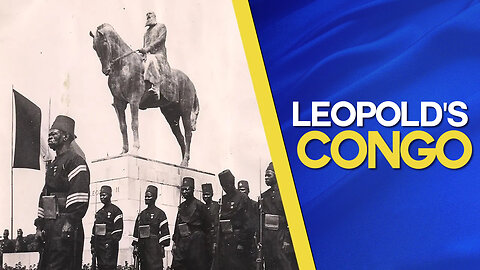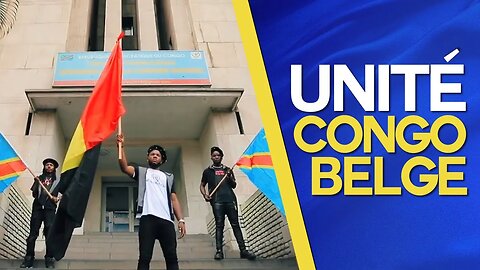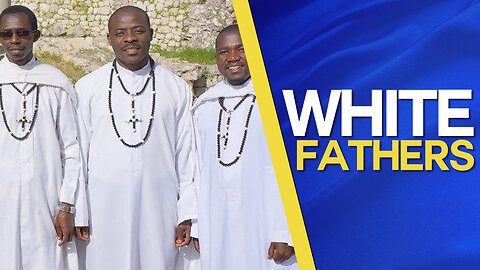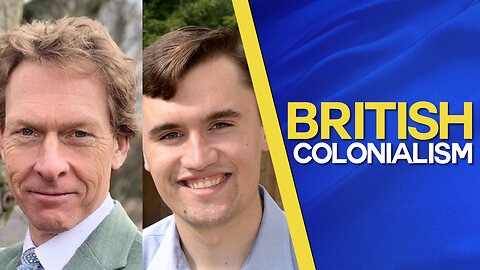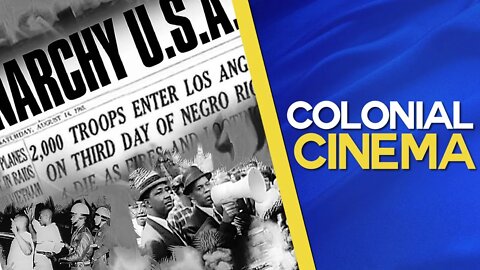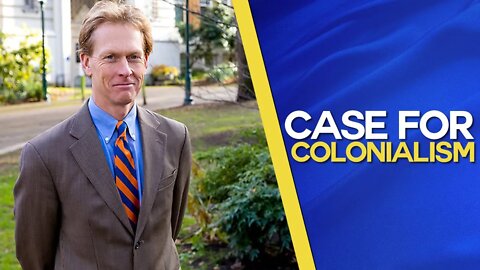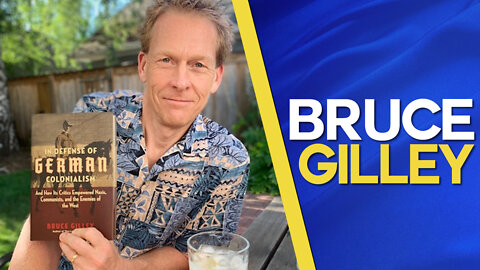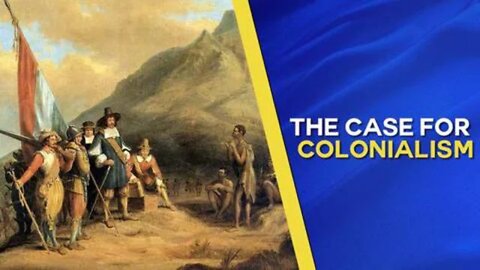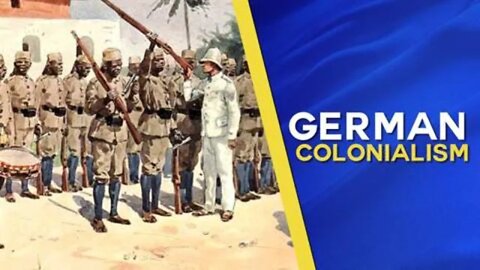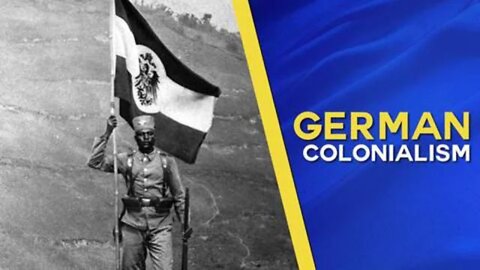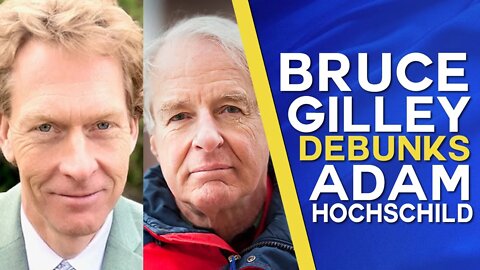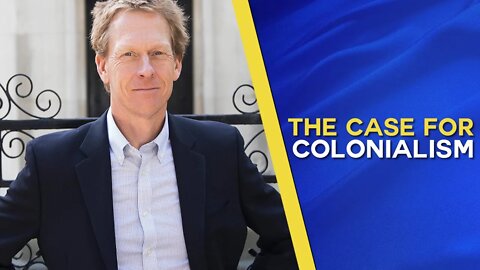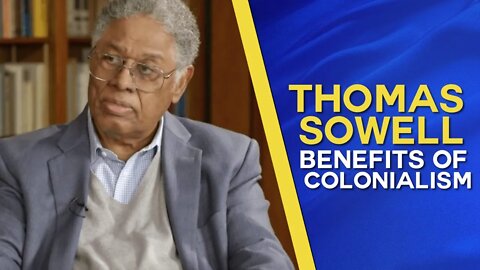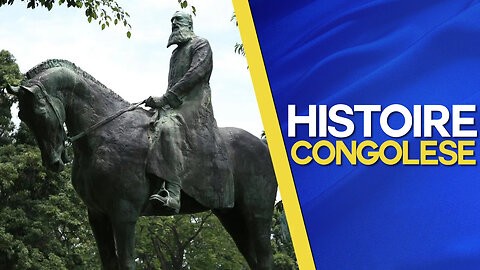Premium Only Content

In Defense of King Léopold’s Congo
Doctor en Politicus Thierry Baudet brengt op poëtische wijze hulde aan het kolonialisme
King Leopold's Ghost: An absurdly deceptive book is better described as historical fiction
Esther Anumu Fordham - Growing up Black in Nazi Germany
Unité Congo-Belgique
The Missionaries Who liberated Africa from Slavery
Was European Colonialism Racist?
In Defence of British Colonialism
The Case for Belgian Colonialism, with Dr. Bruce Gilley and Douglas Murray (Uncancelled History)
Anarchy USA - Film on the Marxist roots of the civil rights and global decolonial movement (1966)
Professor Bruce Gilley joins Neil Oliver on GB News to debate the "Case for Colonialism".
In Defense of German Colonialism: And How Its Critics Empowered the Enemies of the West
De gewelddadige geschiedenis van dekoloniaal Links
Bruce Gilley: The evolution of Colonialism
Post-colonial Africa is similar to post-Roman Europe
Professor Bruce Gilley: In Defense of German Colonialism
The Case for Colonialism
Germany's Mistaken Apology for Colonial Genocide
Professor Bruce Gilley: In Defense of German Colonialism
Peter Verlinden: Het is absolute nonsense om Leopold II een Genocidair te noemen!
De mythe van de afgehakte handen in Congo Vrijstaat - Johan Op De Beeck
The Congo Free State was not a Belgian Colony... Professor Bruce Gilley debunks Adam Hochschild
Nostalgie de l'époque du Congo Belge
The Case for Colonialism
Dutch-Congolese Speaker reveals the truth about King Leopold II and the Congo Free State
Professor Bruce Gilley reveals the Truth about the Congo Free State atrocities under King Leopold II
Nobel Prize winner Milton Friedman on the economics of Colonialism
Thomas Sowell on the benefits of Imperialism and Colonialism
Pour nous, la statue de Léopold II reflète une histoire
Leopold II's Congo genocide of 10 Million Africans, Except not Really!
In Defence of British Colonialism
Until very late, European colonialism appears to have been highly legitimate and for good reasons. Millions of people moved closer to areas of more intensive colonial rule, sent their children to colonial schools and hospitals, went beyond the call of duty in positions in colonial governments, reported crimes to colonial police, migrated from non-colonized to colonized areas, fought for colonial armies, and participated in colonial political processes—all relatively voluntary acts. Indeed, the rapid spread and persistence of Western colonialism with very little force relative to the populations and geographies concerned is prima facie evidence of its acceptance by subject populations compared to the feasible alternatives. The “preservers,” “facilitators,” and “collaborators” of colonialism, as Abernethy shows, far outnumbered the “resisters,” at least until very late: “Imperial expansion was frequently the result not just of European push but also of indigenous pull.” In Borneo, the Sultan of Brunei installed an English traveler James Brooke, as the rajah of his chaotic province of Sarawak in 1841. Order and prosperity expanded to such an extent that even once a British protectorate was established in 1888, the Sultan preferred to leave it under Brooke family control until 1946.
Sir Alan Burns, the governor of the Gold Coast during World War II, noted that “had the people of the Gold Coast wished to push us into the sea there was little to prevent them. But this was the time when the people came forward in their thousands, not with empty protestations of loyalty but with men to serve in the army . . . and with liberal gifts to war funds and war charities. This was curious conduct for people tired of British rule.” In most colonial areas, subject peoples either faced grave security threats from rival groups or they saw the benefits of being governed by a modernized and liberal state. Patrice Lumumba, who became an anti-colonial agitator only very late, praised Belgian colonial rule in his autobiography of 1962 for “restoring our human dignity and turning us into free, happy, vigorous, and civilized men.” Chinua Achebe’s many pro-colonial statements, meanwhile, have been virtually airbrushed from memory by anti-colonial ideology. The few scholars who take note of such evidence typically dismiss it as a form of false consciousness.
The failure of anti-colonial critique to come to terms with the objective benefits and subjective legitimacy of colonialism points to a third and deeper failure: it was never intended to be “true” in the sense of being a scientific claim justified through shared standards of inquiry that was liable to falsification. The origins of anti-colonial thought were political and ideological. The purpose was not historical accuracy but contemporaneous advocacy. Today, activists associate “decolonization” (or “postcolonialism”) with all manner of radical social transformation, which unintentionally ties historic conclusions to present-day endeavors. Unmoored from historical fact, postcolonialism became what Williams called a metropolitan flaneur culture of attitude and performance whose recent achievements include an inquiry into the glories of sadomasochism among Third World women and a burgeoning literature on the horrors of colonialism under countries that never had colonies.
This third failure of anti-colonial critique is perhaps most damaging. It is not just an obstacle to historical truth, which itself is a grave disservice. Even as a means of contemporary advocacy, it is self-wounding. For it essentially weaponizes the colonial past, as the gradually imploding postcolonial South African state’s persecution of Helen Zille shows. “What a meta-narrative of anti-colonial sentiment can render invisible are ways in which people made claims on new possibilities without deploying either anti- or pro-colonial idioms,” Englund writes in his study of colonial-era newspapers in Zambia. “To devote all scholarly attention to the question of how different actors during this period sought to end colonial rule is to succumb to a limiting meta-narrative of anti-colonialism, one that allows no conceptual space between colonial and anti-colonial agendas, and thereby keeps other possibilities inaccessible to the scholarly and moral imagination.”
Follow on Twitter: https://twitter.com/BasedCongo
Follow Professor Gilley on Twitter: https://twitter.com/BruceDGilley
Follow Charlie Kirk on Twitter: https://twitter.com/charliekirk11
#BruceGilley #CharlieKirk #BritishEmpire
-
 LIVE
LIVE
Josh Pate's College Football Show
5 hours ago $0.12 earnedCFP Expansion: Latest Intel | CFB’s Schedule Problem | Arch Manning Hype | ACC Program Rankings
106 watching -
 LIVE
LIVE
LFA TV
23 hours agoTrump vs. Europe | TRUMPET DAILY 2.20.25 7PM
450 watching -
 31:02
31:02
Chrissy Clark
1 hour agoAn IVF Nightmare, Trump’s Illegal Immigration Crackdown, & Biden’s Student Loan Plan BLOCKED I URS
4.07K6 -
 1:02:57
1:02:57
In The Litter Box w/ Jewels & Catturd
1 day agoKASH CONFIRMATION TODAY! | In the Litter Box w/ Jewels & Catturd – Ep. 746 – 2/20/2025
99.7K69 -
 56:44
56:44
VSiNLive
3 hours ago $4.35 earnedFollow the Money with Mitch Moss & Pauly Howard | Hour 1
72.1K3 -
 1:08:41
1:08:41
John Crump Live
7 hours ago $1.80 earnedUSA v. Canada! Bigger Than Just A Game
31.4K6 -
 1:58:40
1:58:40
Revenge of the Cis
4 hours agoEpisode 1450: Wet Work
44.7K2 -
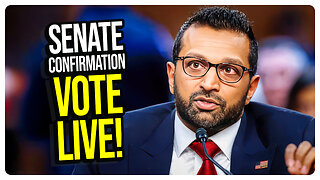 3:36:29
3:36:29
vivafrei
10 hours agoKash Patel Confirmation Hearing LIVE! Jan. 6'er Kicked Out of CPAC? DOGE Wins in Court? & MORE!
263K256 -
 5:08:38
5:08:38
Barry Cunningham
10 hours agoTRUMP DAILY BRIEFING: KASH PATEL VOTE | WHITE HOUSE PRESS CONFERENCE | DOGE UPDATE
73.3K27 -
 1:57:54
1:57:54
The Quartering
8 hours agoRand Paul Praises Trump, Amazon Takes Control of Bond, and Delta Gives Passengers $30,000
119K39
